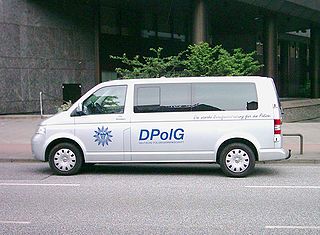Related Research Articles
The Nazi term Gleichschaltung or "coordination" was the process of Nazification by which Adolf Hitler—leader of the Nazi Party in Germany—successively established a system of totalitarian control and coordination over all aspects of German society "from the economy and trade associations to the media, culture and education". Although the Weimar Constitution remained nominally in effect until Germany's surrender following World War II, near total Nazification had been secured by the 1935 resolutions approved during the Nuremberg Rally, when the symbols of the Nazi Party and the state were fused and German Jews were deprived of their citizenship. The tenets of Gleichschaltung also applied to territories occupied by the Nazis.
In the fourteen years the Weimar Republic was in existence, some forty parties were represented in the Reichstag. This fragmentation of political power was in part due to the use of a peculiar proportional representation electoral system that encouraged regional or small special interest parties and in part due to the many challenges facing the nascent German democracy in this period.

Public Services International (PSI) is the global union federation for workers in public services, including those who work in social services, health care, municipal services, central government and public utilities. As of November 2019, PSI has 700 affiliated trade unions from 154 countries representing over 30 million workers.

The Gewerkschaft der Polizei is a trade union in Germany. It represents 181,000 police employees, and is one of eight industrial affiliations of the German Confederation of Trade Unions (DGB). The GdP is one of the three trade unions for police employees in Germany, the other two being the Deutsche Polizeigewerkschaft - affiliated with the German Civil Service Federation - and the Bund Deutscher Kriminalbeamter, which is exclusively for members of the Kriminalpolizei.
DBB or dBB can mean several things:
Trade unions in Germany have a history reaching back to the German revolution in 1848, and still play an important role in the German economy and society.

The Iron Front was a German paramilitary organization in the Weimar Republic which consisted of social democrats, trade unionists, and democratic socialists. Its main goal was to defend social democracy against what was seen as anti-democratic, totalitarian ideologies on the far-right and far-left. The Iron Front chiefly opposed the Sturmabteilung (SA) wing of the Nazi Party and the Antifaschistische Aktion wing of the Communist Party of Germany. Formally independent, it was intimately associated with the Social Democratic Party of Germany (SPD). The Three Arrows, originally designed for the Iron Front, became a well-known social democratic symbol representing resistance against monarchism, Nazism, and communism during the parliamentary elections in November 1932. The Three Arrows were later adopted by the SPD itself.

Kirsten Lühmann is a German politician of the Social Democratic Party (SPD), deputy federal chairwoman of the German Civil Service Federation and, since the German federal elections of 2009, a member of parliament for the SPD.
The General German Trade Union Federation was a confederation of German trade unions in Germany founded during the Weimar Republic. It was founded in 1919 and was initially powerful enough to organize a general strike in 1920 against a right-wing coup d'état. After the 1929 Wall Street crash, the ensuing global financial crisis caused widespread unemployment. The ADGB suffered a dramatic loss of membership, both from unemployment and political squabbles. By the time the Nazis seized control of the government, the ADGB's leadership had distanced itself from the Social Democratic Party of Germany (SPD) and was openly cooperating with Nazis in an attempt to keep the organization alive. Nonetheless, on May 2, 1933, the SA and SS stormed the offices of the ADGB and its member trade unions, seized their assets and arrested their leaders, crushing the organization.
The General Federation of Free Employees was an amalgamation of various socialist-oriented trade unions of technical and administrative employees in the Weimar Republic.
The General Commission of German Trade Unions was an umbrella body for German trade unions during the German Empire, from the end of the Anti-Socialist Laws in 1890 up to 1919. In 1919, a successor organisation was named the Allgemeiner Deutscher Gewerkschaftsbund, and then in 1949, the current Deutscher Gewerkschaftsbund was formed.

The Trade Union International Public Service and Allied is a section of the World Federation of Trade Unions representing public sector workers.

The German Police Trade Union is a trade union in Germany. Representing 94,000 police employees, it is the second largest union for police employees in Germany, following the Gewerkschaft der Polizei (GdP). It is affiliated with the German Civil Service Federation.

The General Union of Public Sector and Transport Workers was a trade union representing workers in various industries in Germany.
Fritz Müntner was a German trade union leader.
Georg Schmidt was a German trade unionist and politician.
A police union is a trade union for police officers. Police unions formed later than most other occupations, reflecting both a conservative tendency and relatively superior working conditions. The first police unions formed in the United States. Shortly after World War I, the rising cost of living, wage reductions, concerns over amount of rest and growing dissatisfaction among rank and file police officers led to a number of police strikes from 1918–1923 and the formation of police unions globally.
References
- 1 2 3 Falkenburg, Albert (1931). Allgemeiner Deutscher Beamtenbund (ADB). ADGB. pp. 19–23. Retrieved 24 June 2020.
- ↑ Potthoff, Heinrich (1987). Freie Gewerkschaften 1918-1933. Droste.